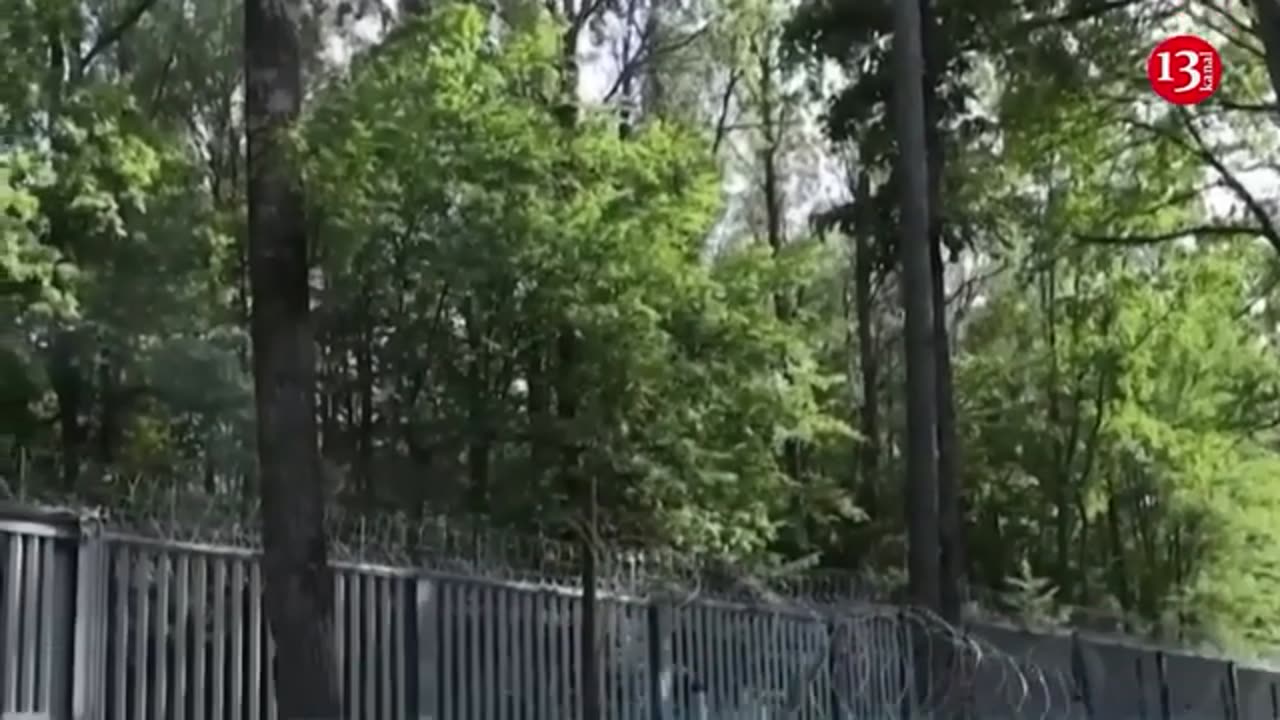Premium Only Content

Ukraine's success in Kursk brings end of Russian general: His decision left a "hole" in defense
This spring, Colonel General Alexander Lapin, who oversaw security in the Kursk region, dissolved the council that oversaw the border region's security. He then declared that only the military had the strength and resources to protect Russia's border.
As The Wall Street Journal writes, this decision created another hole in the defense of the aggressor country, which the Ukrainian Armed Forces took advantage of for a lightning-fast offensive in Kursk region.
It is noted that Lapin faced an acute shortage of people, but his mistake is typical of senior leadership, which is often out of touch with the realities of combat.
"Since the start of the war, Russia's centralized, top-down thinking, one of the defining features of Russia under President Vladimir Putin, has backfired on the battlefield. It has prevented sober planning in the Kremlin, and when those plans have failed, it has prevented Russian troops from improvising to respond to rapid events," the publication explains.
Former US diplomat and Rand adjunct senior fellow William Courtney noted that the Russian power vertical is still in place, but it now works against their goals. In particular, because of this leadership structure, Russia’s response to unexpected events that are unfolding quickly is incredibly difficult, and no one on the ground takes initiative.
At the same time, it is unclear whether the council disbanded by Lapin would have helped organize a coherent response. This interdepartmental body brought together military officers with local and regional security officials. Without a centralized body, Russia's efforts to confront the Ukrainian Armed Forces are chaotic and ineffective. Currently, the Russian Ministry of Internal Affairs, the FSB, and the Russian Ministry of Defense are all trying to lead the Russian response to the invasion.
The reaction of the Russian leadership to the invasion of the Ukrainian Armed Forces is reminiscent of the first hours of the uprising of Yevgeny Prigozhin and Wagner.
According to Russian military correspondents, Lapin's command sent reports to Moscow in the days leading up to the Kursk operation warning that Ukrainian forces were building up their numbers on the front lines. But since such maneuvers had previously been used to create a threat and gain leverage, Moscow dismissed the warnings.
"Moscow simply did not think that such a scenario could happen," said Konrad Muzyka, director of the Polish company Rochan Consulting.
The The Wall Street Journal writes assessed that the defense planning was almost as disastrous as the start of Russia's invasion itself, when the Kremlin sent columns of armored vehicles into Ukraine in ceremonial formation, making them easy targets for drones and anti-tank weapons.
However, this is not the first time that poor planning and a lack of manpower have combined under Lapin’s command. In early September 2022, the Ukrainian Armed Forces launched a surprise attack in northeastern Ukraine. Russia’s line of advance collapsed, and Ukraine managed to retake much of the northeast.
"I would demote Lapin to private, strip him of his awards and send him to the front lines with a machine gun," Chechen leader Ramzan Kadyrov said at the time.
-
 16:03
16:03
Tundra Tactical
9 hours ago $11.78 earnedNew Age Gun Fudds
99.8K15 -
 8:22
8:22
Russell Brand
13 hours agoThey want this to happen
184K387 -
 2:06:43
2:06:43
Jewels Jones Live ®
1 day ago2025 STARTS WITH A BANG! | A Political Rendezvous - Ep. 104
101K38 -
 4:20:41
4:20:41
Viss
13 hours ago🔴LIVE - PUBG Duo Dominance Viss w/ Spartakus
80.3K9 -
 10:15:14
10:15:14
MDGgamin
16 hours ago🔴LIVE-Escape From Tarkov - 1st Saturday of 2025!!!! - #RumbleTakeover
65.3K2 -
 3:54:19
3:54:19
SpartakusLIVE
12 hours agoPUBG Duos w/ Viss || Tactical Strategy & HARDCORE Gameplay
76.6K1 -
 5:54:54
5:54:54
FRENCHY4185
13 hours agoFRENCHY'S BIRTHDAY BASH !!! THE BIG 40 !!!
85.5K3 -
 1:23:33
1:23:33
Michael Franzese
21 hours agoThings to look forward to in 2025
103K60 -
 3:23:02
3:23:02
I_Came_With_Fire_Podcast
22 hours agoDefeating VICTIMHOOD: Advocacy, Resiliency, and Overcoming Abuse
107K19 -
 2:00:56
2:00:56
Game On!
1 day ago $10.59 earnedNFL Experts debate if Joe Burrow will make HISTORY in Week 18!
119K16